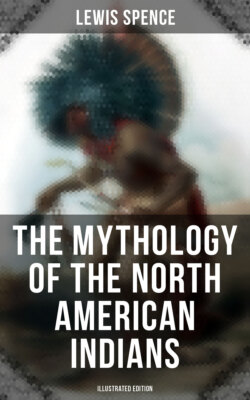Читать книгу The Mythology of the North American Indians (Illustrated Edition) - Lewis Spence - Страница 32
На сайте Литреса книга снята с продажи.
A Sedentary People
ОглавлениеThe Algonquins had been for generations the victims of the Iroquois Confederacy, and only when the French had guaranteed them immunity from the attacks of their hereditary enemies did they set their faces to the east once more, to court repulse a second time at the hands of the English settlers. Tall and finely proportioned, the Algonquins were mainly a sedentary and agricultural people, growing maize and wild rice for their staple foods. Indeed, more than once were the colonists of New England saved from famine by these industrious folk. In 1792 Wayne's army found a continuous plantation along the entire length of the Maumee River from Fort Wayne to Lake Erie, and such evidence entirely shatters the popular fallacy that the Indian race were altogether lacking in the virtues of industry and domesticity. They employed fish-shells and ashes as fertilizers, and made use of spades and hoes. And it was the Algonquins who first instilled in the white settlers the knowledge of how to prepare those succulent dainties for which New England is famous—hominy, succotash, maple-sugar, and johnny-cake. They possessed the art of tanning deerskin to a delicate softness which rendered it a luxurious and delightful raiment, and, like the Aztecs, they manufactured mantles of feather-work. They had also elaborated a system of picture-writing. In short, they were the most intelligent and advanced of the eastern tribes, and had their civilization been permitted to proceed unhindered by white aggression and the recurring inroads of their hereditary enemies, the Iroquois, it would probably have evolved into something resembling that of the Nahua of Mexico, without, perhaps, exhibiting the sanguinary fanaticism of that people. The great weakness of the Algonquian stock was a lack of solidity of character, which prevented them from achieving a degree of tribal organization and cohesion sufficient to enable them to withstand their foes.
